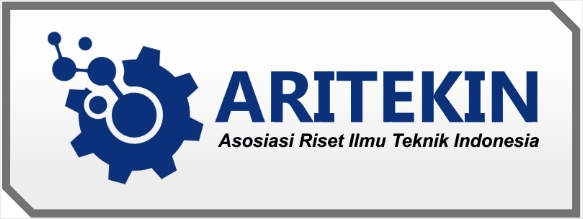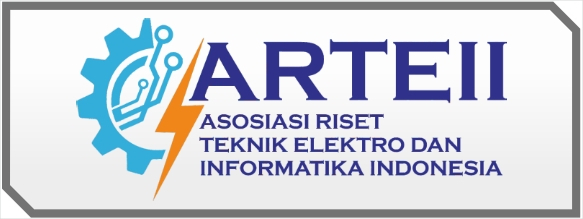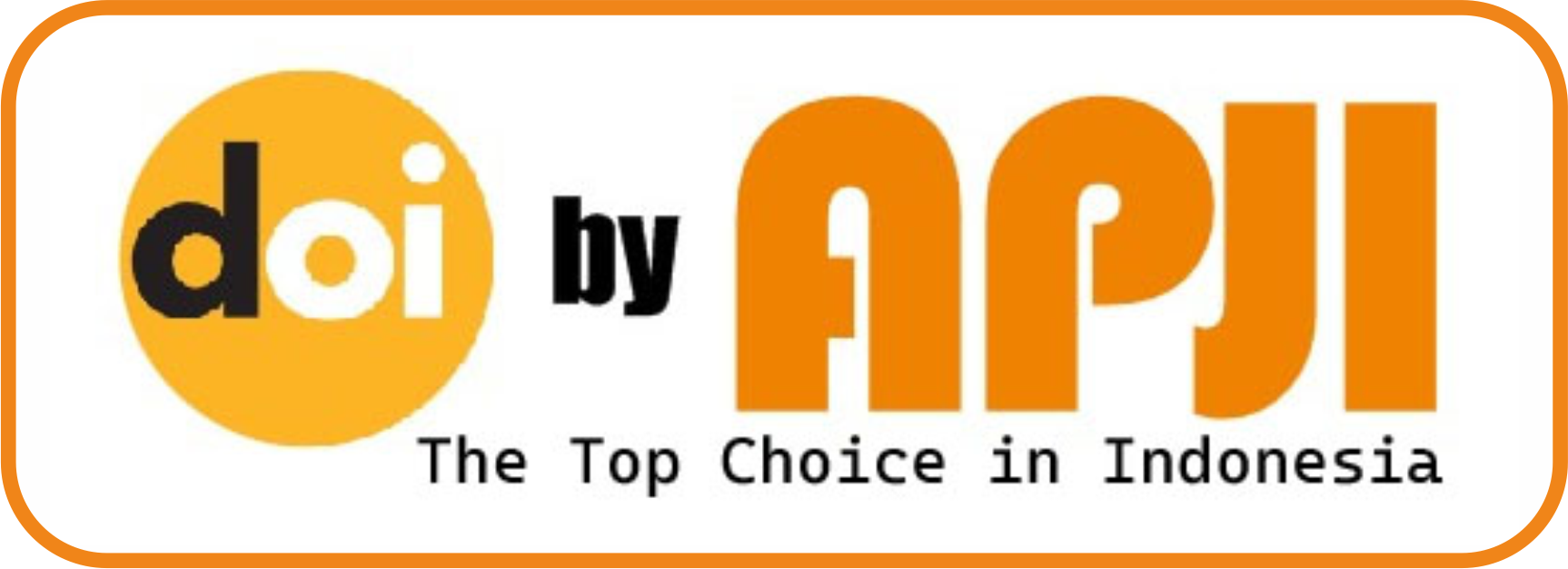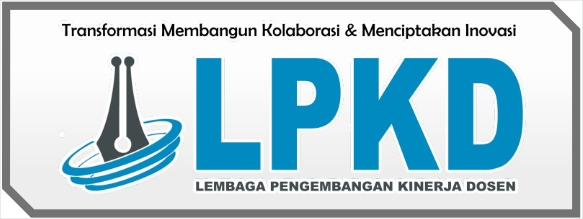PERAN DATA STORE DALAM MEMPRESENTASIKAN HUBUNGAN DATA FLOW DIAGRAM SSADM DENGAN ENTITY RELATIONSHIP DIAGRAM
DOI:
https://doi.org/10.51903/juritek.v2i2.412Abstrak
The information system development step often used is the System Development Life Cycle (SDLC). One of the SDLC stages is system design. It uses the Data Flow Diagram version of the Structured System Analysis and Design Methodology (SSADM) because it is a traditional model closely related to the waterfall model. This study aims to prove the role of the data store in the DFD and become an entity in the Entity-Relationship Diagram (ERD) to see the relationship between each entity. Benefit the associative method tests the connection of the data store on the DFD, which is realized to the ERD. The results obtained are the role of the data store in the DFD to become an entity on the ERD with a proven query table to facilitate data retrieval.
Keywords: Entity Relationship Diagram, Data Flow Diagram, SDLC, SSADM
Referensi
[2] A. Fauzi and E. Harli, “JURNAL RESTI (Rekayasa Sistem dan Teknologi I nformasi) Peningkatan Kualitas Pelayanan Melalui CRM dengan Metode RAD,” 2017, [Online]. Available: http://jurnal.iaii.or.id
[3] E. W. Fridayanthie, H. Haryanto, and T. Tsabitah, “Penerapan Metode Prototype Pada Perancangan Sistem Informasi Penggajian Karyawan (Persis Gawan) Berbasis Web,” Paradigma - Jurnal Komputer dan Informatika, vol. 23, no. 2, Sep. 2021, doi: 10.31294/p.v23i2.10998.
[4] A. A. Wahid, “Analisis Metode Waterfall Untuk Pengembangan Sistem Informasi,” Jurnal Ilmu-ilmu Informatika dan Manajemen STMIK, 2020, Accessed: Jun. 19, 2022. [Online]. Available: https://www.researchgate.net/publication/346397070_Analisis_Metode_Waterfall_Untuk_Pengembangan_Sistem_Informasi
[5] S. R. Pressman, Roger, S. Pressman, Ph.D. , 2012, Rekayasa Perangkat Lunak - Google Cendekia, Ed.7. Yogyakarta: Andi, 2012. Accessed: Mar. 12, 2020. [Online]. Available: https://scholar.google.co.id/scholar?hl=id&as_sdt=2005&sciodt=0%2C5&cites=7972897112769499795&scipsc=&q=+Roger%2C+S.+Pressman%2C+Ph.D.+%2C+2012%2C+Rekayasa+Perangkat+Lunak+%28Pendekatan+Praktisi%29+Edisi+7+%3A+Buku+1+%E2%80%9C%2C+Yogyakarta%3A+Andi&btnG=#d=gs_cit&u=%2Fscholar%3Fq%3Dinfo%3Ay5T8dx2NoxoJ%3Ascholar.google.com%2F%26output%3Dcite%26scirp%3D0%26hl%3Did
[6] N. Kustian, “STRING (Satuan Tulisan Riset dan Inovasi Teknologi) PENGGUNAAN MODEL WATERFALL DALAM PEMBUATAN APLIKASI PEMESANAN TIKET BUS,” STRING (Satuan Tulisan Riset dan Inovasi Teknologi), vol. 1. No.4, no. 1 Agustus 2019, pp. 94–104, 2019, doi: 10.30998/string.v4i1.3768.
[7] J. Inovasi Penelitian, O. Bayu Rianto, and M. Giatman, “RANCANG BANGUN APLIKASI WEBSITE E-LEARNING PADA LKP ENGLISH CLUB TEMBILAHAN,” vol. 1, no. 9, 2021.
[8] F. Soufitri, “PERANCANGAN DATA FLOW DIAGRAM UNTUK SISTEM INFORMASI SEKOLAH (STUDI KASUS PADA SMP PLUS TERPADU)”.
[9] N. Sudarsono, “Sistem Informasi Inventory Berbasis Web di PT Autotech Indonesia.”
[10] M. Muliadi, M. Andriani, and H. Irawan, “PERANCANGAN SISTEM INFORMASI PEMESANAN KAMAR HOTEL BERBASIS WEBSITE (WEB) MENGGUNAKAN DATA FLOW DIAGRAM (DFD),” JISI: Jurnal Integrasi Sistem Industri, vol. 7, no. 2, p. 111, Sep. 2020, doi: 10.24853/jisi.7.2.111-122.
[11] M. Arif, Pemodelan Sistem, Ed.1 Cet. 2. Yogyakarta: deepublish (Grup Penerbitan CV BUDI UTAMA), 2017. Accessed: Jun. 19, 2022. [Online]. Available: https://books.google.co.id/books?id=LVxDDwAAQBAJ&lpg=PT11&ots=_Ify71kTXs&dq=PEMODELAN%20SISTEM&lr&pg=PA1#v=onepage&q=PEMODELAN%20SISTEM&f=false
[12] S. Radack, “THE SYSTEM DEVELOPMENT LIFE CYCLE (SDLC) NIST Special Publication (SP) 800-64, Revision 2, Security Considerations in the System Development Life Cycle.”
[13] S. Sarosa, Metodologi Pengembangan Sistem Informasi, Cetakan I. Jakarta, 2017. Accessed: Jun. 19, 2022. [Online]. Available: https://opac.perpusnas.go.id/DetailOpac.aspx?id=1080923#
[14] R. Ibrahim and S. Y. Yen, “Formalization of the Data Flow Diagram Rules for Consistency Check,” International Journal of Software Engineering & Applications, vol. 1, no. 4, pp. 95–111, Oct. 2010, doi: 10.5121/IJSEA.2010.1406.
[15] “4 Data Flow Diagram.”
[16] M. Woodman, “Yourdon dataflow diagrams: a tool for disciplined requirements analysis,” 1988.
[17] R. G. Fichman and C. F. Kemerer, “Object-Oriented and Conventional Analvsis and J Design Methodologies Comparison and Critique.”
[18] C. M. Ashworth, “Structured systems analysis and design method (SSADM).”
[19] M. C. Goodland and R. K. Maji, “The Application of SSADM to the Design of Information Systems in Manufacturing,” 1987.
[20] M. A. Mohammed, J. Abdullah, D. A. Muhammed, D. Abdul Kareem Muhammed, and J. M. Abdullah, “Practical Approaches of Transforming ER Diagram into Tables International Journal of Multidisciplinary and Scientific Emerging Research Practical Approaches of Transforming ER Diagram into Tables,” 2015. [Online]. Available: http://www.ijmser.com/
[21] G. T. Mardiani, S. Kom, and M. Kom, “Entity Relationship Model,” 2016.
[22] J. Frantiska, “Entity-Relationship Diagrams,” 2018, pp. 21–30. doi: 10.1007/978-3-319-67440-7_4.
[23] N. Sudarsono and S. Sukardi, “Sistem Informasi Inventory Berbasis Web di PT Autotech Indonesia,” Jurnal Eksplora Informatika, vol. 5, no. 1, pp. 73–84, 2015.
[24] H. Herlinda, R. Ramliyana, and E. W. Ambarsari, “Pengejawantahan Pendekatan Storytelling dalam Pemahaman Membangun Diagram Alir Data,” Edumatic: Jurnal Pendidikan Informatika, vol. 5, no. 2, pp. 223–232, Dec. 2021, doi: 10.29408/edumatic.v5i2.4060.
[25] S. M. S. Web Dan, “Fathansyah. 2015. Basis Data. Revisi Kedua. Informatika, Bandung.”.



.png)















